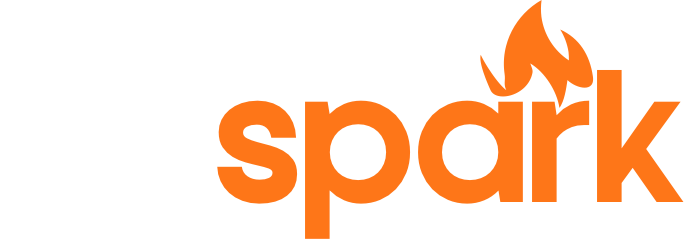Budgeting Your Salary Efficiently in 2025
Financial stress can feel like a big wave crashing on your dreams. In 2025, managing your salary is more important than ever. Personal finance planning is not just about numbers. It’s about finding your way to financial freedom and peace of mind.
The economic world is changing fast. This makes learning how to budget your salary in 2025 very important. Your money needs a smart plan that meets today’s needs and tomorrow’s goals. No matter if you live in Mumbai, Delhi, or Bangalore, knowing your financial power can change your life.
Imagine a future where money worries don’t rule your life. With smart budgeting, you can make your salary work for you. This guide will show you how to manage your money well in the next year.

Budgeting Your Salary Efficiently in 2025
Key Takeaways
- Develop a detailed budget for your 2025 money needs
- See why planning your finances ahead is key
- Discover ways to make the most of your salary
- Make a financial plan that can change with the economy
- Start building a strong financial future
Understanding the Importance of Financial Planning in 2025
2025’s financial world is complex. You need smart salary tips and a strong personal finance plan. The economy is changing fast, making planning key for financial stability.
Experts say planning ahead can change your money future. A good budget is like a map for your money. It helps you see and use your income better.
The Impact of Economic Changes on Personal Finance
Recent economic changes are tough for managing your money. Important things to think about include:
- Increasing inflation rates
- Volatile job markets
- Rising living expenses
- Digital transformation of financial services
Why Budgeting Matters More Than Ever
Budgeting is more than just tracking money. It’s about financial empowerment. With smart salary tips, you can:
- Build financial resilience
- Reduce financial stress
- Achieve long-term financial goals
- Prepare for unexpected economic changes
Key Financial Challenges to Prepare For
Your budget should be ready for economic surprises. Create flexible financial plans. This way, your money stays safe in 2025 and later.
How to Budget Your Salary Efficiently in 2025
Mastering your financial goals in 2025 needs a smart plan. You must track your expenses and manage your budget well. The economy is changing, so we need new ways to plan our money.
First, know how much you make and how you spend it. Here are steps to budget your salary well:
- Do a full check of your expenses
- Sort your spending into must-haves and nice-to-haves
- Make clear money goals for now and later
- Use digital tools to track your spending live
Your plan for tracking expenses should be detailed and accurate. Think about using apps that sort your spending and show you how you spend money.
| Expense Category | Recommended Allocation | Tracking Method |
|---|---|---|
| Housing | 30-35% | Monthly fixed expense |
| Transportation | 10-15% | Digital tracking apps |
| Savings | 20-25% | Automated transfers |
Pro tip: Check and change your budget every three months to keep up with your money goals.
Digital tools have changed how we track expenses. Use phone apps and online sites that give you quick, live info. This helps you make smart money choices fast.
Assessing Your Current Financial Situation
Knowing your financial situation is key to planning well. It’s about understanding your money flow, where it comes from, and how you spend it.
Doing a full financial check-up helps you make a budget that fits your goals. It lets you decide how to spend, save, and invest wisely.
Calculating Your Total Monthly Income
First, write down all the money you make. This includes:
- Primary salary from your main job
- Freelance or part-time work earnings
- Investment returns
- Rental income
- Passive income sources
Tracking Fixed and Variable Expenses
Sort your spending into fixed and variable costs. Fixed costs stay the same, but variable costs change each month.
- Fixed Expenses: Rent, insurance, loan payments
- Variable Expenses: Groceries, entertainment, utilities
Evaluating Your Debt Obligations
Managing debt is vital for financial health. List all debts you have, including:
- Credit card balances
- Personal loans
- Student loans
- Mortgage payments
By really looking at your finances, you’ll build a strong base for a budget. This budget will help you reach your financial goals in 2025.
The 50/30/20 Rule for Modern Budgeting
Learning about personal finance is key. The 50/30/20 rule is a simple way to budget. It helps you deal with money issues in 2025.
This method splits your monthly income into three parts:
- 50% for Needs: Things like a home, food, and health care
- 30% for Wants: Fun stuff like movies and clothes
- 20% for Savings and Debt Repayment: Money for emergencies and paying off debt
To use this rule, you need to plan your finances well. First, figure out how much money you have left after taxes. Then, sort out your expenses. Using apps to track your money can help a lot.
The 50/30/20 rule is flexible. You can change the numbers if your situation is different. If you live in a pricey area or have a lot of debt, you might need to adjust.
Good budgeting means making a plan that fits your life and goals. By following these tips, you can make a strong financial base for the future.
Essential Tools and Apps for Budget Management
Managing money in 2025 is easier with digital tools. These tools help track expenses and plan budgets. They make it simple to keep up with your money.
Modern budgeting tools have cool features. They give you real-time info on your money. This helps you make smart choices about your finances.
Digital Budgeting Solutions
Today’s apps track expenses well. They have cool features like:
- Automatic bank syncing
- Spending alerts
- Custom budget categories
- Visual spending reports
Automated Expense Tracking Systems
Apps make tracking easy. Wallet by BudgetBakers is a great example. It lets you:
- Link bank accounts easily
- Sort transactions fast
- Get detailed financial reports
Budget Template Resources
| App Name | Key Features | Monthly Budget Template Support |
|---|---|---|
| YNAB (You Need A Budget) | Zero-based budgeting | Fully customizable |
| Mint | Free tracking and alerts | Pre-designed templates |
| Personal Capital | Investment tracking | Comprehensive financial overview |
Choosing the right tool can change how you manage money. Look at these options to find what works best for you in 2025.
Creating an Emergency Fund Strategy

In 2025, the money world is full of surprises. It’s key to have a strong emergency fund. This fund keeps you safe from sudden costs and unsure money times.
Try to save enough to cover 3 to 6 months of living costs. This helps you feel secure and stable when things get tough.
- Determine your monthly essential expenses
- Calculate the ideal emergency fund target
- Select low-risk, easily accessible savings options
- Automate monthly contributions
Here are some smart ways to save for your emergency fund:
- High-yield savings accounts give better interest rates but are easy to get to
- Short-term certificates of deposit (CDs) might earn a bit more
- Online banks usually have better rates
Begin with a small amount if you can. Saving 5-10% of your income each month helps grow your fund. Having a strong emergency fund makes reaching your money goals easier.
Smart Debt Management and Reduction Techniques
Managing your money well is key. You need a plan to pay off debt. This is very important in today’s economy.
Prioritizing High-Interest Debt
Debt with high interest can hurt your money goals. Pay off these debts first. This will save you money in the long run.
The debt avalanche method is a good way to do this.
- Find debts with the highest interest rates
- Put extra money towards these debts
- Pay the minimum on debts with lower interest
Debt Consolidation Options
Merging your debts can make things simpler. It might also lower your interest payments. Look into different ways to combine your debts.
| Consolidation Method | Pros | Cons |
|---|---|---|
| Personal Loan | Fixed interest rate | Potential origination fees |
| Balance Transfer Credit Card | 0% introductory APR | Limited promotional period |
| Home Equity Loan | Lower interest rates | Risk of losing home |
Building a Debt Repayment Timeline
Make a plan to pay off your debt. It should fit your budget and goals. Break down your debt into smaller parts. Set goals you can reach.
- Calculate total debt
- Determine monthly repayment capacity
- Set specific debt reduction goals
- Track progress regularly
Using these methods, you can control your finances. This will help you reach a stable financial spot by 2025.
Investment Planning for Long-term Financial Goals

Planning your financial goals needs smart investment thinking. Saving money is key, but investing can grow your wealth fast. It’s important to know how to use your money well for a strong financial future.
When planning to save for 2025, think about these investment ways:
- Diversify your investment portfolio across different asset classes
- Start with low-cost index funds for consistent returns
- Leverage retirement account contributions
- Explore digital investment platforms with minimal entry barriers
Your financial goals should match your risk level. Young professionals can usually take on riskier investments. But, those near retirement might want safer choices. Dollar-cost averaging helps by investing the same amount regularly, no matter the market.
Digital tools make investing easy. Sites like Zerodha, Groww, and PayTM Money are great for beginners. They let you start with little money. Small, regular investments can grow into big wealth over time.
Keep an eye on your investments and change your plan as needed. Your 2025 investment plan should be flexible but focused on growing your money over time.
Balancing Savings and Lifestyle Expenses
Finding the right balance between saving and enjoying life is key. In 2025, smart tips can help you stay financially healthy. You won’t have to give up your quality of life.
Identifying Needs vs. Wants
It’s important to know the difference between needs and wants. This helps with budget planning. Here’s a quick guide:
- Needs: Things like housing, food, healthcare, and basic utilities
- Wants: Things like dining out, entertainment, and luxury items
Setting Realistic Saving Targets
Here are some tips for saving money:
- First, look at your monthly income and fixed costs
- Try to save 20% of your income
- Make a budget that lets you have some fun too
Maintaining Quality of Life While Saving
Saving doesn’t mean you can’t have fun. Look for ways to spend less without giving up your lifestyle:
- Find free or cheap ways to have fun
- Eat at home instead of eating out
- Look for cheaper ways to do your favorite things
By using these tips, you can save money and enjoy life. The goal is to find a balance that fits your financial situation.
Regular Budget Review and Adjustment Strategies
Keeping your finances healthy means watching your spending closely. Your budget is not set in stone. It changes as your life does.
Good budgeting means checking and tweaking it often. Try to look at your budget every 3 months. This helps it stay in line with your goals and life changes.
- Track your spending each month to see where it goes
- Change your budget every 3-4 months
- Look at any extra money or big expenses
- Check if your spending matches your priorities
When you check your budget, pay attention to important things:
- See how your spending compares to your budget
- Find ways to save money
- Change your budget to fit your needs
- Move money to help reach your goals
Being flexible with your budget is key. Life is always changing, and your budget should be ready to adapt.
Using digital tools can make budgeting easier. Many apps give you smart tips and updates. This makes reviewing your budget quicker and more helpful.
Most Read:-Savings or Investment: Which is the Smarter Choice
Conclusion
Personal finance planning is a powerful tool. It can change your financial world. As we face economic challenges in 2025, learning to budget your salary is key.
Strategies and techniques from this article can lead to financial stability and growth. Your financial success comes from taking consistent, deliberate actions.
Using the 50/30/20 rule and digital budgeting tools are important steps. They help you control your finances. Budgeting is not about limiting yourself but making smart choices for your future.
Getting to financial wellness takes commitment and being adaptable. Start by checking your finances, tracking expenses, and reviewing your budget often. Digital tools can make this easier, making personal finance planning simpler.
Your financial future is yours to shape. By using these budgeting strategies for 2025, you’ll manage your salary better. You’ll reduce debt and build wealth. Start today and see your financial confidence grow with each smart choice.
FAQ
How important is budgeting in 2025?
Budgeting is very important in 2025. The economy is changing, and money matters can be uncertain. A good budget helps you manage your money well, track what you spend, and reach your financial goals.
What is the 50/30/20 budgeting rule?
The 50/30/20 rule is a way to budget. You spend 50% on needs like rent and food. Then, 30% on wants like fun stuff. And 20% on saving and paying off debt. It’s a flexible way to stay financially healthy.
How much should I save in my emergency fund?
Save 3-6 months of living costs in your emergency fund. In 2025, aim for the higher end because of economic uncertainty. The right amount depends on your job, income, and personal finances.
What digital tools can help me budget?
Many digital tools are available in 2025. Apps like YNAB, Mint, Personal Capital, and PocketGuard help track expenses and offer budget advice. They make managing your money easier.
How often should I review my budget?
Review your budget monthly or every three months. This helps you see how you’re doing and make changes as needed. It keeps your budget up to date with your finances and goals.
What strategies can help reduce high-interest debt?
To pay off debt, try the debt avalanche method or debt consolidation. You can also talk to lenders for lower rates. Make a plan to pay off your debt step by step.
How can I start investing with a limited budget?
Start with low-cost index funds and use employer-matched 401(k) plans. Look into micro-investing apps like Acorns or Robinhood. Invest a little bit regularly to build wealth over time.
What’s the best way to track expenses?
Use apps, spreadsheets, and keep receipts to track expenses. Categorize your spending and check your transactions often. Many apps can automatically sort your spending, making it easier.
How do I balance saving with enjoying life?
Spend wisely by knowing what’s important to you. Find cheaper ways to do things and set aside money for fun. Aim for a budget that lets you save and enjoy life.
What should I do if my income fluctuates?
If your income changes, budget based on your lowest month. Keep a big emergency fund and focus on essential costs. Use percentages instead of fixed amounts to adjust to income changes.


